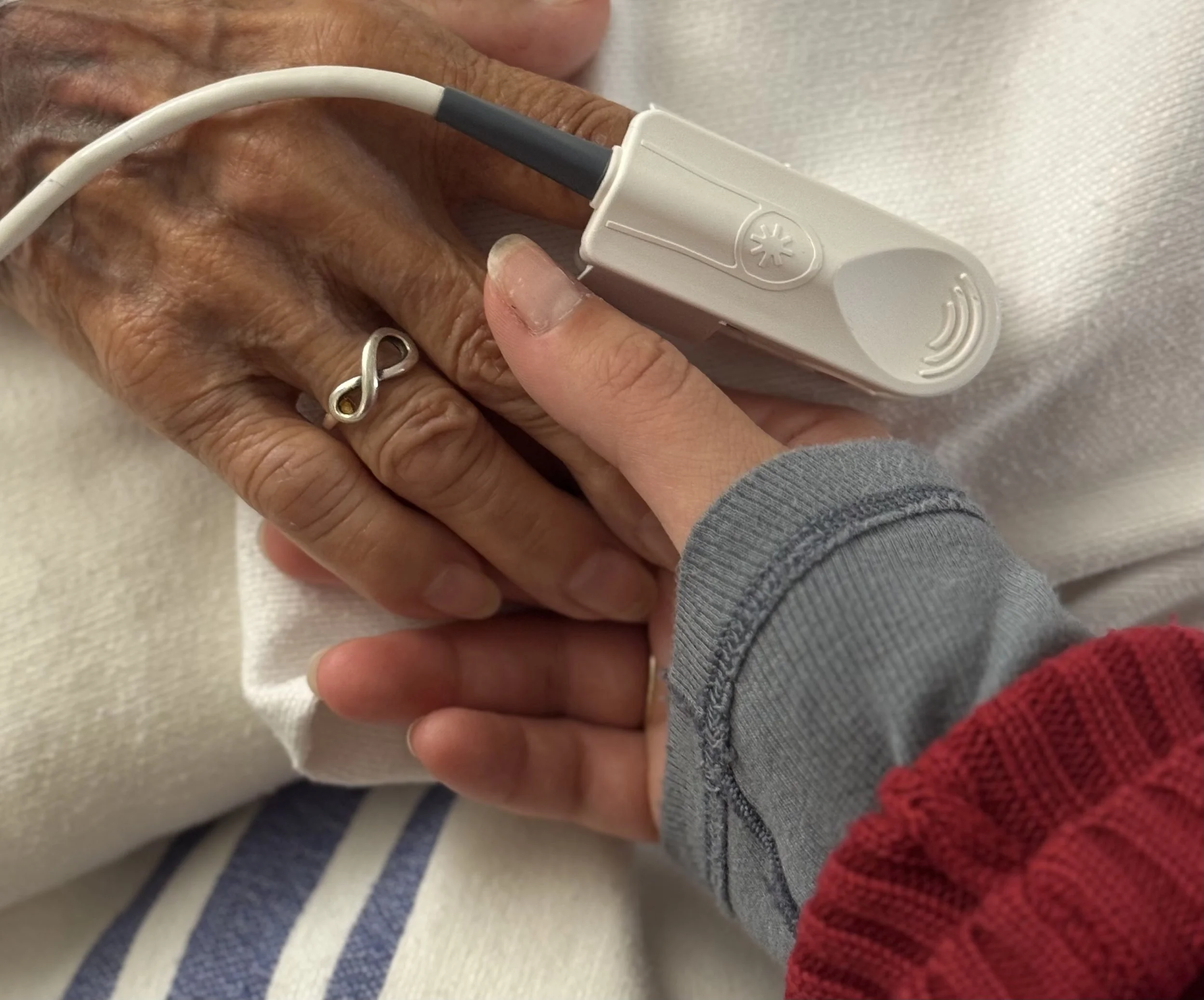1. On loss and remembering: Shock
Seventy-two days ago, my grandmother Greta Oak passed away. She was known in my family as Nanny. My mom and I arrived from Montreal the day before her stroke. After landing on the Island, we picked up Nanny at her apartment and drove to my aunt’s house. We had a delicious halibut dinner with the family; my aunty Judy and uncle Mike, my cousins, and a handful of their young kids. After dinner, we sat outside in the back yard. We ate Cheezies, drank wine, and planned activities for our visit. The kids played in the inflatable pool and Nanny picked strawberries in the garden. The next day, she had a severe stroke. It was an unexpected and devastating shock. I travelled with her for over an hour in a helicopter from Port Alberni to the Victoria General Hospital. We spent the next six days together in the hospital before she left us. She was surrounded by family; her two sisters, her two daughters, her six grandchildren, her five great-grandchildren, and her oldest friends.
Sitting on lawn chairs that my mom’s friend had dropped off for us, we crowded around her in the small hospital room. Together, we told stories, laughed at funny memories, sat in silence, and cried. Individually, we took moments to ourselves, walked around the hospital, or found a cup of coffee. We played cards, knitted, and ate cupcakes for my brother’s birthday. We even sang “happy birthday.” My cousin had stopped at Nanny’s house to pick up her quilt and found a tightly wrapped birthday present and card sitting on the edge of the bed. It was for my brother Raffie. During the last few days of her life, Nanny was no longer conscious, but I know that on some level, she knew exactly what was going on. For my family, this time was horrible and sacred.
We were truly shocked by her departure. At eighty-seven, my grandmother lived independently, in the same little apartment that was her home for twenty-seven years. She was in good health, with only minor forgetfulness at times. During these days at the hospital and the weeks following, we were in a constant state of physical dis-ease — like a large, dry, rock lodged in the stomach, pushing and pulling against your insides. My grandmother was consistent and gentle. She embodied unconditional love, warmth, and safety. Losing Nanny has been the hardest thing to happen to our family. Since her death, I’ve been navigating the passing of time with relief and sadness. Relief that slowly the rock in my stomach feels easier to carry, and despair that on this timeline, I move farther away from our last visit.
While processing her death, one of the things I have been asking myself is how I can maintain my relationship with her now that she is no longer here physically. Although I don’t really have an answer for this yet, there are a few things that make me still feel connected to her. These include her physical belongings: her placemats, tea cups, and sweaters. They are also intangible, like the way she made me feel, and my memories of us beading, playing rummy, and cooking together in her kitchen. I’ve decided to start this blog as a way to process grief and honour her through stories.
